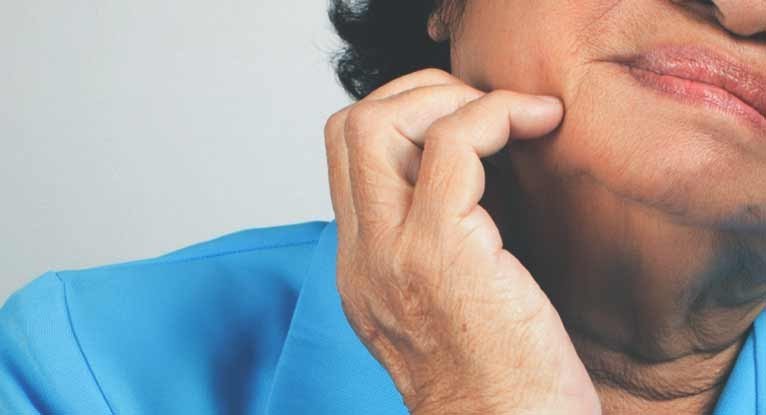That sudden pins-and-needles sensation in your face can be unsettling, but it’s more common than you might think. Known as paresthesia, facial tingling often signals a temporary nerve issue, though it can hint at deeper health concerns. Nexus Mag explores the causes of this sensation, its symptoms, and natural remedies to ease discomfort and restore calm.
What Is Facial Tingling?
Paresthesia, or the feeling of tingling and numbness, occurs when nerves in the peripheral nervous system (PNS) are compressed or damaged. The PNS connects your brain to your body through nerve fibers, transmitting signals. When a nerve is pinched or inflamed—often the trigeminal nerve in facial cases—signal transmission falters, triggering tingling or numbness as the brain’s response. Mild cases resolve quickly, but persistent tingling may require medical attention.
Causes of Facial Tingling
Facial tingling is a symptom, not a standalone condition, often linked to the trigeminal nerve’s irritation. Common causes include:
- Physical Nerve Stress: Pressure on the trigeminal nerve from dental injuries, facial trauma, or tumors.
- Neurological Conditions: Stroke, multiple sclerosis, transverse myelitis, or encephalitis.
- Systemic Issues: Dehydration (5–6% fluid loss), poor blood circulation, or chronic hemodialysis.
- Nutritional Deficiencies: Low vitamin B6 or malnutrition from alcohol misuse.
- Medications: Drugs like penicillamine, isoniazid, or phenelzine.
- Psychological Factors: Anxiety, panic disorders, or severe stress.
- Autoimmune Disorders: Sarcoidosis or other immune-related conditions.
- Pregnancy or Breastfeeding: Hormonal shifts affecting nerve function.
If tingling comes with facial pain, it may be trigeminal neuralgia, a chronic nerve condition.
Symptoms to Watch For
Besides tingling, you may experience:
- Numbness or a “crawling” sensation on the skin.
- Heightened sensitivity in the affected area.
- Occasional pain, especially in severe cases.
Diagnosis
Identifying the cause is key. A neurologist may:
- Review your medical history to pinpoint triggers.
- Order an MRI or CT scan if stroke is suspected.
- Conduct blood tests for underlying conditions like vitamin deficiencies.
- Refer you to a psychiatrist if anxiety or psychological factors are suspected.
Medical Treatments
Treatment depends on the cause. Mild tingling often resolves on its own, but severe cases may require:
- Corticosteroids: To reduce nerve inflammation.
- Neurological Care: For conditions like trigeminal neuralgia or stroke.
- Psychiatric Support: For stress-related tingling, therapy or medication may help.
Natural Remedies for Facial Tingling
Complement medical care with these natural approaches to ease symptoms:
1. Cognitive Behavioral Therapy (CBT)
CBT with sensory retraining helps rewire nerve responses, distinguishing between static and dynamic touch. It aids in managing numbness and tingling without causing pain. Consult a therapist trained in sensory-focused CBT.
2. Mindfulness Meditation
Mindfulness reduces stress and depression, common tingling triggers. By focusing on the present without judgment, it promotes relaxation and may lessen symptom perception. Practice 10–20 minutes daily for best results.
3. Vitamin B6 Supplements
Vitamin B6 (pyridoxine) deficiency can cause nerve tingling. While rare, older adults or those with poor diets may benefit from supplements. Consult a doctor for the right dosage to avoid toxicity.
4. Turmeric Milk
Turmeric’s curcumin has anti-inflammatory and antioxidant properties, potentially reducing nerve pain and tingling. A study suggests turmeric with alpha-lipoic acid eases peripheral neuropathy symptoms. Recipe: Boil 2.5 cm turmeric root in 230 ml milk for 15 minutes, strain, and drink daily.
5. Ginkgo Biloba Extract
Ginkgo biloba’s antioxidant and neuroprotective effects may reduce tingling by combating oxidative stress. Studies show 120–240 mg daily can improve nerve function and motor recovery post-injury. Check with a doctor before starting.
When to See a Doctor
Seek immediate medical care if you experience:
- Sudden tingling, especially on one side of the body.
- Persistent burning or tingling lasting over a few minutes.
- Tingling with weakness, confusion, or vision changes (possible stroke signs).
Chronic tingling may indicate serious conditions like nerve damage or autoimmune disorders. A neurologist can assess and prevent complications.
Take Control of Facial Tingling
While often harmless, facial tingling can signal underlying issues. From mindfulness to turmeric milk, natural remedies can complement medical care. Always consult a doctor for persistent symptoms. Explore more wellness tips in our Lifestyle hub at Nexus Mag.






